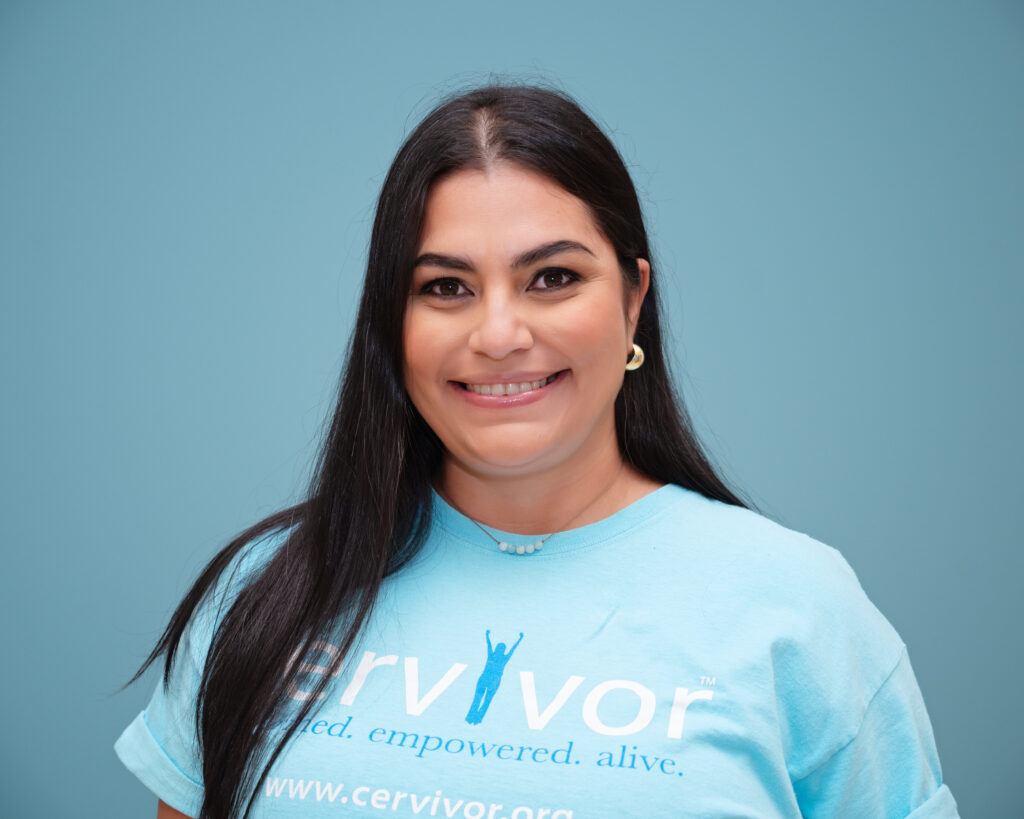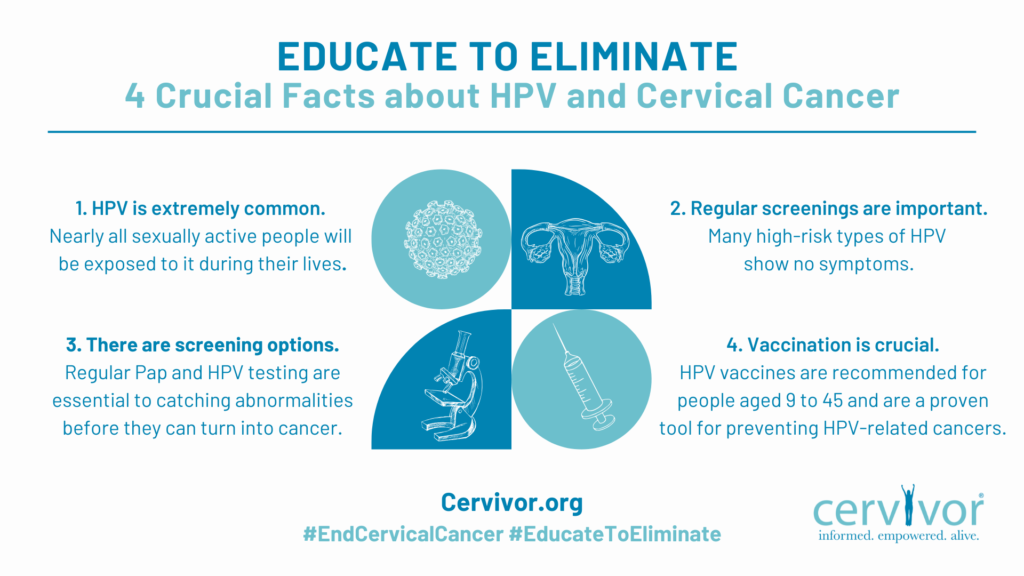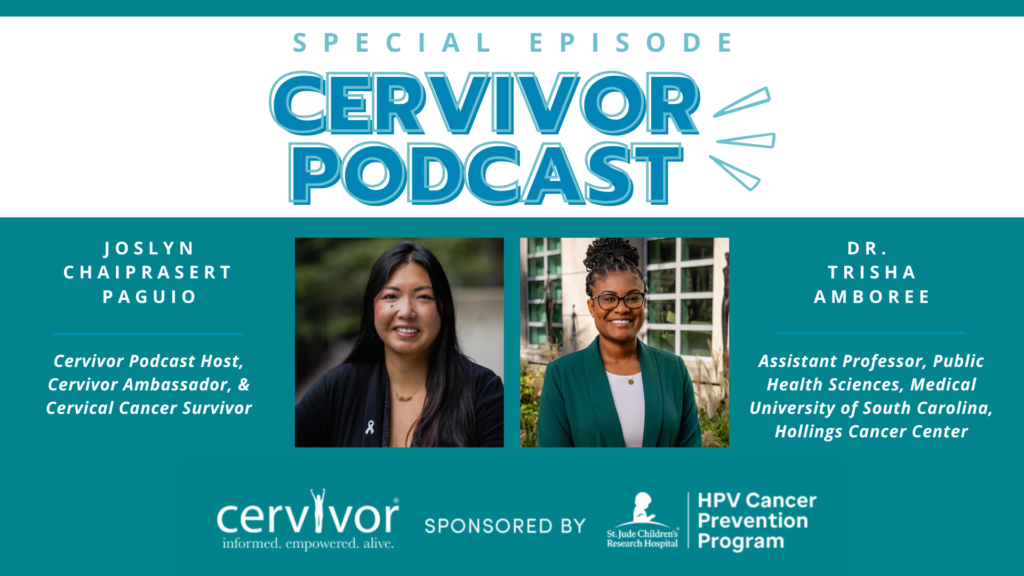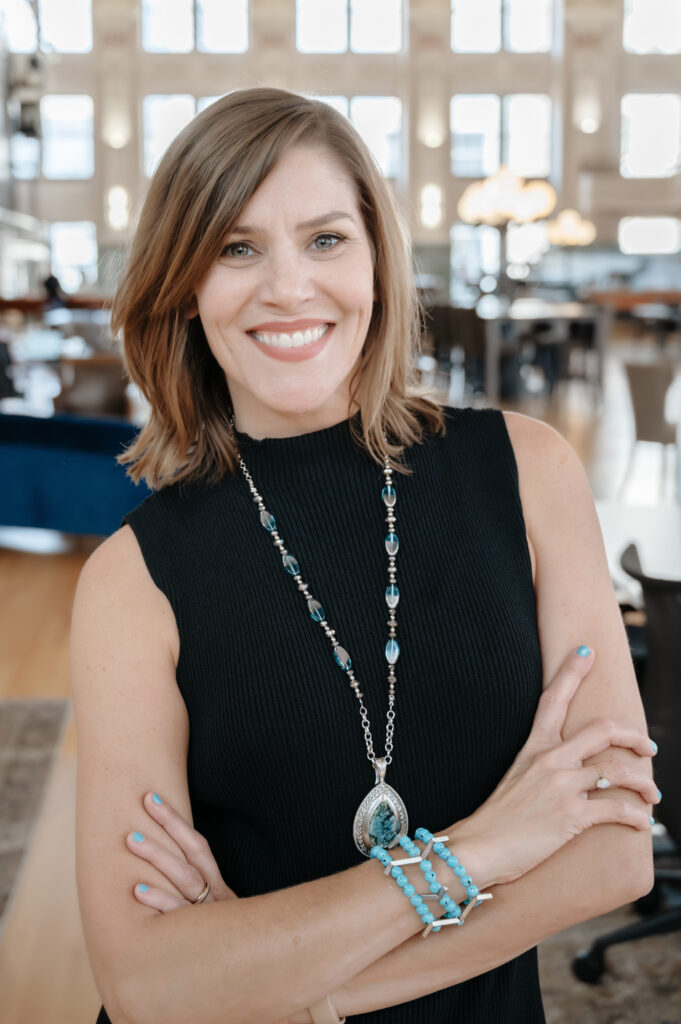For many cervical cancer survivors, healing goes beyond remission, often leading to advocacy that raises awareness and offers strength. Here, Cervivor community members and cervical cancer advocates Christy Basa Chambers, Athena Porter, and Lorie Wallace share personal reflections on how their journey with cervical cancer has helped them thrive — not just survive.
If you’re in need of a pick-me-up, read on!
Christy’s Story: Living Her ‘Dash’
About Christy: An 18-month Stage IV cervical cancer survivor, Christy Basa Chambers lives in Monroe, NC, with her family. She’s a Cervivor Ambassador, 2023 Cervivor School graduate, and winner of the 2024 Brittany Wagner Social Media Advocacy Award.
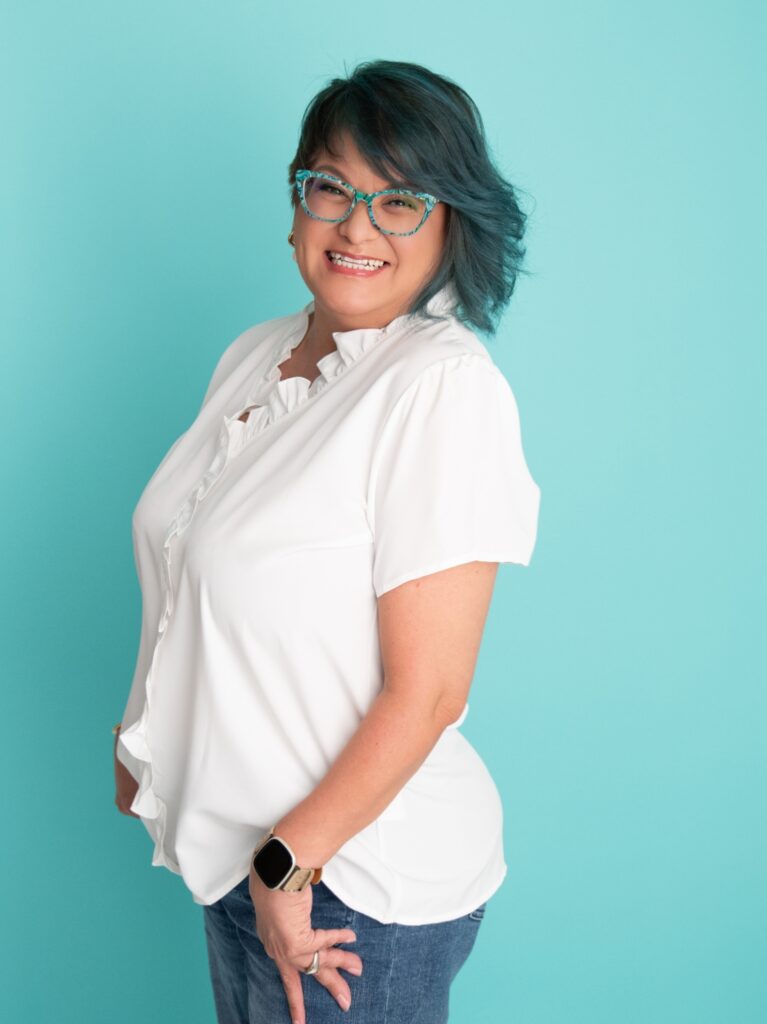
“I was given a second chance at living.”
When I first wrote that phrase in a blog post, I paused. Was it “a second chance at life,” or did I really mean living? Are they different? I think they are. Life is the span of time we are given, but living is what we do with that time.
The distinction became clear after my diagnosis of Stage IV metastatic cervical cancer. Facing my mortality forced me to ask hard questions: How would I be remembered? What legacy would I leave? These questions didn’t just make me reflect on my past; they became a wake-up call to reevaluate my present. Survival wasn’t enough for me — I wanted to thrive.
But thriving didn’t happen overnight. It was a choice I made every day, even when it felt impossible. I had to face my fears and let go of what didn’t serve me.
Now, I’m living my “dash.” What’s a dash? It’s that little line between the dates of our birth and death. It’s small, yet so powerful, because it represents everything we do while we’re here. Cancer taught me to live my dash with intention — to focus on love, kindness, generosity, and joy.
Advocacy has been one of the most transformative ways I’ve chosen to live my dash. As a Cervivor Ambassador, I’ve found healing through helping others. Sharing my story and empowering others to share theirs has given me a sense of purpose and a way to leave an impact.
Who am I? A Cervivor, a thriver, and an opti-mystic who sees the world through the eyes of possibility. That’s the legacy I want to leave.
Athena’s Story: Overcoming Survivor’s Guilt
About Athena: Athena Porter was diagnosed with cervical cancer in 2023. She lives in Iowa with her husband and two little girls. Since her diagnosis, Athena has served on a panel at the 2024 Cervical Cancer Summit and continues to advocate for cervical cancer awareness and prevention.

To call myself a “cervical cancer survivor” used to feel like a fraud. My cancer was caught early, and my treatment was a radical hysterectomy. Diagnosed after having two children, I was spared the devastation of infertility and the physical toll of chemo, radiation, or brachytherapy. I got to keep my hair.
In contrast, many of the women in the Cervivor community I’ve been blessed to meet since my diagnosis have endured grueling treatments. They’ve shaved their heads, relocated for care, lost their fertility, and dealt with the lingering effects of treatment-induced trauma. Despite facing anxiety, depression, pain, and significant physical challenges, they continue to persevere and advocate for those without a voice. I am honored to know these women. Their strength, passion, and unwavering light inspire me.
Still, survivor’s guilt is real. My experience feels minimal in comparison because I “only” needed surgery to remove my cancer. Thankfully, the incredible women I admire have reminded me that it wasn’t “just” surgery or “just” stage 1A cancer. They’ve encouraged and supported me, helping me embrace my journey as valid. Their support has been instrumental in helping me thrive, not just survive.
I’ve been given a platform to advocate not only for those impacted by cervical cancer but also for its prevention. My hysterectomy was radical and represented the best-case treatment scenario for me, but the true best-case scenario is no cancer at all. Supporting the HPV vaccine, promoting early screenings, and advocating for proper treatment is the least I can do for all the women battling cervical cancer.
Lorie’s Story: Never Giving Up
About Lorie: Lorie Wallace, a Detroit resident, was diagnosed with invasive cervical adenocarcinoma in 2017. She underwent surgery, radiation, and chemotherapy, and later developed radiation-induced lumbosacral plexopathy (RILP), a debilitating condition with no cure. Today, as a Cervivor Ambassador and 2022 Cervivor Champion, she inspires others with her resilience.
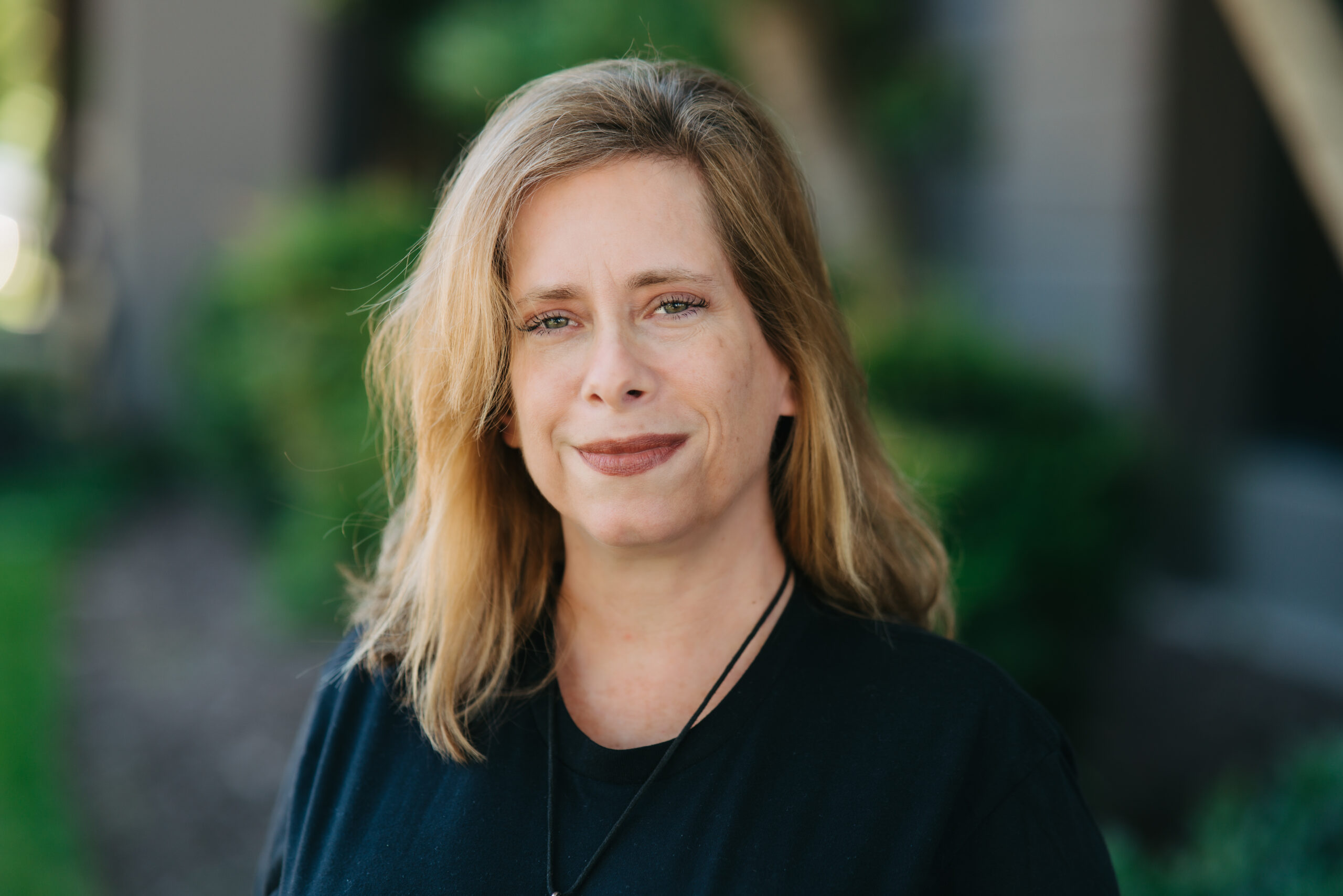
Sometimes, I wait until I’m alone to scream at the injustice of it all. But I refuse to let cervical cancer or my radiation-induced lumbosacral plexopathy (RILP) define me.
I’ve learned that while I can’t control everything, everything cannot control me. I’ve found ways to adapt and thrive, not just survive. I’ve focused on strengthening the muscles not affected by plexopathy, embraced the support of my cane, and let go of the stigma I once felt about using a disabled parking pass. Learning to give myself grace and to see these tools not as symbols of weakness but of perseverance has been a profound part of my journey.
Through advocacy, I’ve reclaimed my purpose. As a Cervivor Ambassador, a cancer support coach, and a mentor with organizations like Imerman Angels, I use my voice to help others navigate life after cancer. This work has been as healing for me as it has been impactful for others. I’ve discovered that purpose can emerge even from the darkest times.
For me, advocacy is more than action — it’s a declaration: I am still here, I am still fighting, and I will never give up.
Interested in Patient Advocacy?
Christy, Athena, and Lorie’s stories show that surviving cancer is only the beginning. By turning their experiences into cervical cancer patient advocacy, they’ve found healing, hope, and a way to thrive. You can make a difference too!
Here’s how you can get involved with Cervivor advocacy:
- Attend Cervivor School: Gain training to become a leader in cervical cancer advocacy. Sign up to receive the latest updates!
- Support Through Donations: Help fund programs that empower survivors.
- Raise Awareness: Promote cervical cancer prevention and survivorship.
Together, we can thrive, not just survive — and make a difference!
